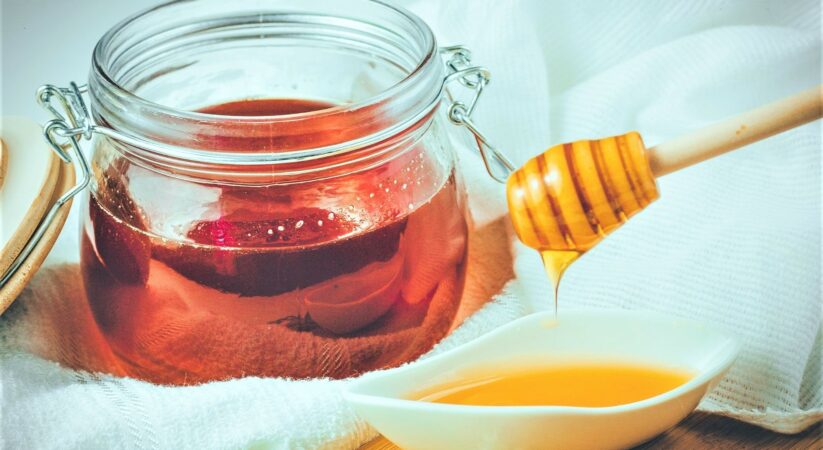Manuka honey’s natural healing properties have been recognized by folk and traditional medicine since ancient times. Honey is more than just a posh main dish in many ancient cultures.
Even though honey has a lot of nutrients and antioxidants, not all honey has the same positive effects on health.
Due to the presence of bioactive compounds that are naturally occurring, manuka honey has exceptional therapeutic and medical effects and can help you improve your health.
What benefits does manuka honey provide?
Black honey known as manuka honey is produced by bees that pollinate the blooms of the manuka bush, which is native to New Zealand. Manuka honey is different from regular honey in that it contains active ingredients that make it naturally antibacterial.
Manuka Honey has developed a large following among supporters over the past few decades. In addition to its earthy, rich flavor, manuka honey has a lot of positive press.
However, what specific advantages does manuka honey provide? How can Manuka honey be used? For more information, see the following list of Manuka Honey’s health benefits:
1) Better oral health –
Poor oral health is a common issue. Studies have shown that people with decayed teeth and poor dental health are more likely to suffer from heart attacks and congestive heart failure.
Manuka honey’s benefits extend to improved oral health, despite the widespread belief that sugars may raise the risk of dental cavities.
2) Antibacterial properties –
Despite the fact that regular honey has a favorable reputation in this regard, the advantages of Manuka honey stand out because of its high MGO level. Manuka honey’s MGO content suggests that it has antibacterial properties.
The MGO number increases the antibacterial and antimicrobial action.
Bees that frequently visit Manuka bushes bring back the antibacterial compound DHA, which is found in the nectar of Manuka blossoms. After that, the bees bring it back to the hive, where they turn it into MGO-rich Manuka honey, which is delicious.
3) Soothes a sore throat –
Manuka honey has a lot of amazing properties, including the ability to ease a sore throat. This is because honey is so effective at relieving sore throats. That, in addition to Manuka honey’s antibacterial properties, is a winning combination!
In point of fact, a recent study demonstrated that honey is superior to prescription medications when it comes to treating coughs and sore throats in young children.
4) Acne treatment –
Manuka honey may have been promoted as a skincare ingredient. But does it actually work?
It has been shown in studies to help keep skin free of microorganisms, moisturize it, and reduce inflammation.
Manuka honey has moisturizing properties that contribute to its skin benefits. It comes from fructose, glucose, and some amino acids in honey. Strong antibacterial and anti-inflammatory properties are present.
5) Wound healing –
Manuka honey has a number of advantages when it comes to applying bandages to wounds. It works quickly because of its high sugar content, which pulls fluid out of the wound. When Manuka honey is applied to wounds, dirt and debris can be removed and any diseased material can be removed.
Tissue edema can also be reduced by Manuka’s anti-inflammatory properties. Additionally, it appears that manuka encourages the immune system to accelerate tissue regeneration. It makes sense that Manuka Honey is used to treat wounds.
6) Treating stomach ulcers –
Honey can also be used to treat peptic ulcers successfully. Honey contains flavonoids, which have antioxidant properties. Utilizing these flavonoids may prevent stomach ulcers from forming. The high concentration of flavonoids in manuka honey accounts for its beneficial effects on digestion.
Manuka honey may be used to treat ulcer-causing H. pylori bacteria, according to early studies. H. pylori can miraculously survive in stomach acid. Honey has been used as a homeopathic remedy for stomach ulcers for millennia.
Manuka works well as a natural sweetener for beverages due to its intense and pure flavor. The viscosity of manuka honey is thicker and creamier than that of regular honey. Honey that has been processed has a bland or smooth flavor. Manuka honey, in contrast to its conventional counterpart, has a distinct flavor and aroma.
Manuka honey has many wonderful benefits, but only a small amount should be consumed.
- World Meditation Day 2024: The Emotional Growth Benefits of Mindfulness for Kids - December 21, 2024
- Bryson DeChambeau will make international history in his first tournament of the year - December 21, 2024
- Disney’s ‘Mufasa: The Lion King’: Who Is the Voice of the Legendary King? - December 21, 2024





